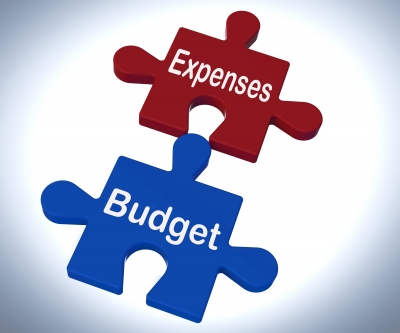 It’s not always easy to create and actually keep a budget. That’s because most of us are not really taught how to manage our money. Keeping a budget is, in fact, the key to wealth.
It’s not always easy to create and actually keep a budget. That’s because most of us are not really taught how to manage our money. Keeping a budget is, in fact, the key to wealth.
The great news is this: it is possible to create (and keep) a budget– and not be up to your eyeballs in debt. You just must learn some keys to budgeting.
The following budgeting skills will help you to put it all into perspective and learn how to budget so that you have all the money you need to cover all of your bills- with some left over.
There are two major rules when it comes to budgeting. First of all, you obviously can’t spend more than you’re bringing in and credit cards must be off limits. Cut them up if you must- but don’t use them! Secondly, as soon as you get paid, you must apply it to your budget- don’t spend it until you know where it’s going.
Use printable budget worksheets to get you started and help to keep you focused in creating and following your budget.
The Top 7 Budgeting Skills You Need:
Budgeting skills are a great thing to have. Once you know how to create- and follow- a budget, you will find that you have the money to pay all of your bills and then some. Budgeting is a great way to become wealthy.
Yes, of course, you need a source of income- but when you can manage that money wisely, you can become wealthy instead of just appearing to be wealthy with debt up to your eyeballs.
Following are seven must have budgeting skills. Once you master these, you will be well on your way to having more money.
1) First of all, you must give yourself time. Sit down and make a list of your income and expenses. Pay attention to what you’re spending money on for the next few weeks- a month is ideal for setting this up- to catch up on and remember things you may have forgotten in that initial list. Those little things really will add up- even that $5 daily latte. If you don’t take them into account when you’re planning your budget, it’s not going to work.
2) Put your list in order of priority, once your list of income vs. expenses is complete. This can be an eye-opening experience. You may actually learn that you’re not spending according to what your values are. Maybe you want to be saving for retirement, but instead, you’re spending that money on coffee or cheeseburgers.
3) Don’t be too hard on yourself for your past- or present- mistakes. Of course, don’t excuse the mistakes either. Simply accept that setbacks and mistakes are going to happen and then get yourself excited about creating for your family and yourself a new financial future. If your goal is to save a certain amount of money, maybe create a chart that will show your savings growth- which will help you to track your progress easier and give you a sense of satisfaction when you add to the amount.
4) Allow yourself a little bit of money to have some fun. Many times, people fail at budgeting within the first few months because they’re not allowing themselves any money to play around with- to spend on what they want to spend it on. When you totally deprive yourself of something you want or enjoy, then you’re setting yourself up for failure. You may end up splurging on something in the future, which will totally mess up your budget.
5) Get out of the “entitlement” mindset. When you feel like you’re entitled to certain luxuries, such as a new wardrobe or a new car every year, you won’t be able to control how much you’re spending on them. Accept that there are certain things you’re going to want and include small amounts each month for those in your budget so that you can splurge and then move on. Budgeting isn’t just for the necessities, it’s also for those splurges.
6) Keep those miscellaneous expenses in mind. There are things that are going to happen- the kids will get sick, the car will need repair, one of the major household appliances will break and need repair or replacement. This is just the natural course- things are going to happen. So, make sure you have money set aside for those moments, or you will have to take money from one of your other categories to pay for it.
7) Have your savings automated as much as you possibly can. You’ll find that if you don’t see it before it’s put into your savings account, it’s much easier to save it. You can’t spend it if you don’t feel like you ever really had it, right? This is why the government takes out taxes before you even see your paycheck. So, if you’ll automatically fund your savings account(s), you’ll ace the hardest part of your budgeting skills and be shocked at how much you will be able to save in no time.
Images courtesy of FreeDigitalPhotos.net
In reality, budgeting is a simple concept, but it’s the human mind and emotions that complicate it significantly.